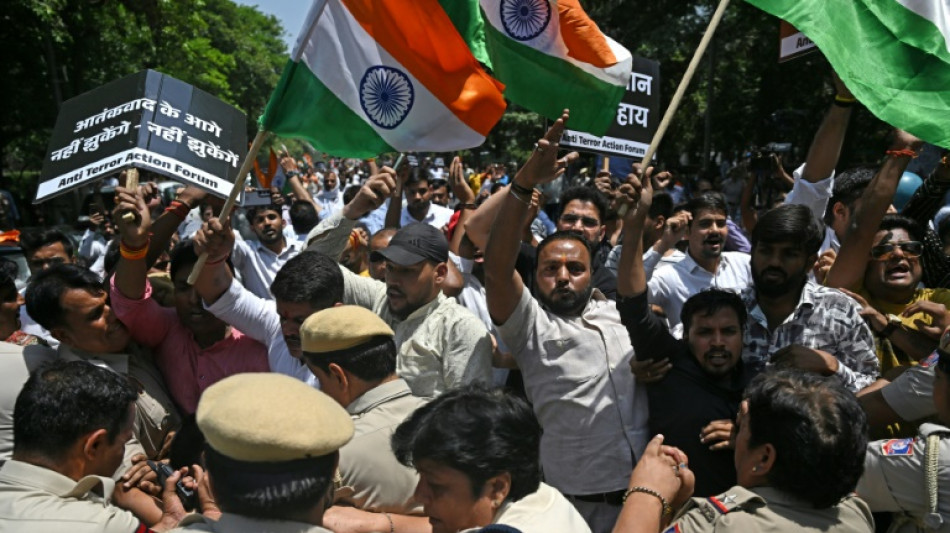
-
 Syria's Druze take up arms to defend their town against Islamists
Syria's Druze take up arms to defend their town against Islamists
-
Tesla sales plunge further in France, down 59% in April

-
 US calls on India and Pakistan to 'de-escalate'
US calls on India and Pakistan to 'de-escalate'
-
Israel reopens key roads as firefighters battle blaze

-
 Europe far-right surge masks divisions
Europe far-right surge masks divisions
-
James will mull NBA future after Lakers playoff exit

-
 Ukraine's chief rabbi sings plea to Trump to side with Kyiv
Ukraine's chief rabbi sings plea to Trump to side with Kyiv
-
Australian mushroom meal victim 'hunched' in pain, court hears

-
 Lakers dumped out of playoffs by Wolves, Rockets rout Warriors
Lakers dumped out of playoffs by Wolves, Rockets rout Warriors
-
Booming tourism and climate change threaten Albania's coast

-
 US reaching out to China for tariff talks: Beijing state media
US reaching out to China for tariff talks: Beijing state media
-
Tariffs prompt Bank of Japan to lower growth forecasts

-
 Kiss faces little time to set Wallabies on path to home World Cup glory
Kiss faces little time to set Wallabies on path to home World Cup glory
-
Serbian students, unions join forces for anti-corruption protest

-
 Slow and easily beaten -- Messi's Miami project risks global embarrassment
Slow and easily beaten -- Messi's Miami project risks global embarrassment
-
Fan in hospital after falling to field at Pirates game

-
 Nuclear power sparks Australian election battle
Nuclear power sparks Australian election battle
-
Tokyo stocks rise as BoJ holds rates steady

-
 Bank of Japan holds rates, lowers growth forecasts
Bank of Japan holds rates, lowers growth forecasts
-
'Sleeping giants' Bordeaux-Begles awaken before Champions Cup semis

-
 Napoli eye Scudetto as Inter hope for post-Barca bounce-back
Napoli eye Scudetto as Inter hope for post-Barca bounce-back
-
Germany's 'absolutely insane' second tier rivalling Europe's best

-
 PSG minds on Arsenal return as French clubs scrap for Champions League places
PSG minds on Arsenal return as French clubs scrap for Champions League places
-
UK WWII veteran remembers joy of war's end, 80 years on

-
 Myanmar junta lets post-quake truce expire
Myanmar junta lets post-quake truce expire
-
Rockets romp past Warriors to extend NBA playoff series

-
 Messi, Inter Miami CONCACAF Cup dream over as Vancouver advance
Messi, Inter Miami CONCACAF Cup dream over as Vancouver advance
-
UN body warns over Trump's deep-sea mining order

-
 UK local elections test big two parties
UK local elections test big two parties
-
US judge says Apple defied order in App Store case

-
 Seventeen years later, Brood XIV cicadas emerge in US
Seventeen years later, Brood XIV cicadas emerge in US
-
Scorching 1,500m return for Olympic great Ledecky in Florida

-
 Israel's Netanyahu warns wildfires could reach Jerusalem
Israel's Netanyahu warns wildfires could reach Jerusalem
-
Istanbul lockdown aims to prevent May Day marches

-
 Formation Metals Announces Appointment of Adrian Smith to Advisory Committee
Formation Metals Announces Appointment of Adrian Smith to Advisory Committee
-
Cerrado Gold Announces Q4 And Annual 2024 Financial Results

-
 Australian guard Daniels of Hawks named NBA's most improved
Australian guard Daniels of Hawks named NBA's most improved
-
Mexico City to host F1 races until 2028

-
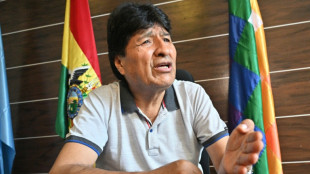 Morales vows no surrender in bid to reclaim Bolivian presidency
Morales vows no surrender in bid to reclaim Bolivian presidency
-
Ukraine, US sign minerals deal, tying Trump to Kyiv
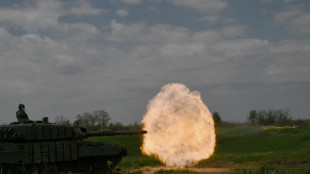
-
 Phenomenons like Yamal born every 50 years: Inter's Inzaghi
Phenomenons like Yamal born every 50 years: Inter's Inzaghi
-
Ukraine, US say minerals deal ready as Kyiv hails sharing
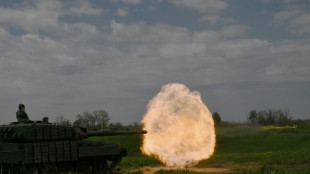
-
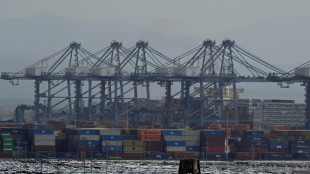 Global stocks mostly rise following mixed economic data
Global stocks mostly rise following mixed economic data
-
O'Sullivan says he must play better to win eighth snooker world title after seeing off Si Jiahui

-
 Sabalenka eases past Kostyuk into Madrid Open semis
Sabalenka eases past Kostyuk into Madrid Open semis
-
Netflix's 'The Eternaut' echoes fight against tyranny: actor Ricardo Darin

-
 US economy unexpectedly shrinks, Trump blames Biden
US economy unexpectedly shrinks, Trump blames Biden
-
Barca fight back against Inter in sensational semi-final draw

-
 Meta quarterly profit climbs despite big cloud spending
Meta quarterly profit climbs despite big cloud spending
-
US Supreme Court weighs public funding of religious charter school


Furious India eyes response to Pakistan after Kashmir attack
India has hit Pakistan with a raft of mostly symbolic diplomatic measures after a deadly attack it blames on its arch-rival, but analysts warn a military response may yet come.
New Delhi suspended a water-sharing treaty, announced the closure of the main land border crossing with Pakistan, downgraded diplomatic ties and withdrew visas for Pakistanis on Wednesday night, just over 24 hours after gunmen killed 26 men in Indian-administered Kashmir.
And then on Thursday, New Delhi said it had suspended visas services "with immediate effect" and ordered all Pakistani nationals to leave the country, with the exception of remaining diplomats.
Experts say that a military response may still be in the pipeline, with some speculating that a response may come within days while others say weeks.
New Delhi accuses Islamabad of supporting "cross-border terrorism" -- claims Pakistan denies -- and police in Kashmir identified two Pakistani nationals among the three alleged gunmen.
India's Prime Minister Narendra Modi vowed on Thursday to punish all those responsible "to the ends of the Earth".
Relations between the nuclear-armed neighbours have sunk to their lowest level in years and some fear New Delhi's diplomatic moves may just be an opening salvo.
"This attack is going to take... relations a long way back to the dark days," said International Crisis Group analyst Praveen Donthi.
"Given the Narendra Modi government's security approach, they might resort to kinetic (military) measures in the next couple of weeks, because they believe in projecting a strong security state."
Pakistan held a rare national security meeting on Thursday after New Delhi's punitive diplomatic measures.
- 'Escalation' -
The killings have shocked India because they were a dramatic shift targeting civilians and the area's vital tourism industry, rather than more common smaller-scale attacks against Indian security forces.
Hindu pilgrims have been targeted in the past, but direct attacks on the tourist trade that underpins much of the local economy are much rarer.
"A major attack in a tourist area does constitute a break from the past," said Ajai Sahni, a counter-terrorism expert at the New Delhi-based Institute for Conflict Management.
Sahni suggested there had been "an unwritten contract" not to attack the general tourism trade "because virtually everyone" in Kashmir is directly or indirectly dependent on tourism.
For New Delhi, the 3.5 million tourists who it says visited Kashmir in 2024 -- mostly domestic visitors -- illustrated what officials called "normalcy and peace" returning to the troubled region after a massive crackdown in 2019.
"One of the reasons this attack might have happened is because the government started linking the numbers of tourists... to this narrative of normalcy," Donthi said.
"The militants finally changed their attack. Usually, they don't attack tourists and civilians... And this is going to mark an escalation in the conflict."
The 2019 crackdown followed Modi's decision to cancel Kashmir's partial autonomy and impose direct control from New Delhi.
US-based analyst Michael Kugelman said he believed the shift meant India would therefore also likely respond with military force.
"I would argue that the combination of the scale of this attack as well as the targeting -- the fact that civilians were hit -- that suggests to me that there is a strong likelihood of some type of Indian military retaliation," he said.
"I don't necessarily think that such a response would come quickly. I suspect that New Delhi will want to take some time, some days to review a range of possible retaliations."
- 'Covert options available' -
India has taken its time to respond to past attacks.
The worst attack in recent years in Indian-run Kashmir was at Pulwama in 2019, when insurgents rammed a car packed with explosives into a police convoy, killing 40 and wounding 35.
Indian fighter jets carried out air strikes on Pakistani territory 12 days later, a raid that came against the backdrop of campaigning for India's general elections.
Action taken by India so far is limited.
The now-suspended Indus Water Treaty shares critical water between the two countries -- but is more a paper agreement and India has no major means of restricting flow downstream to Pakistan.
The closure of the border crossing at the Attari-Wagah frontier is also significant, although there are rarely large numbers who cross.
The border crossing hosts a hugely popular evening ritual, where crowds gather to cheer on soldiers as they goose-step in a chest-puffing theatrical show that has largely endured through innumerable diplomatic flare-ups.
Sahni said any potential military response was "ill-advised".
"There have been military responses in the past," he said.
"They have been drummed up to have been these great successes. They had not achieved any significant outcomes -- and there is a wide range of covert options available."
A.Malone--AMWN